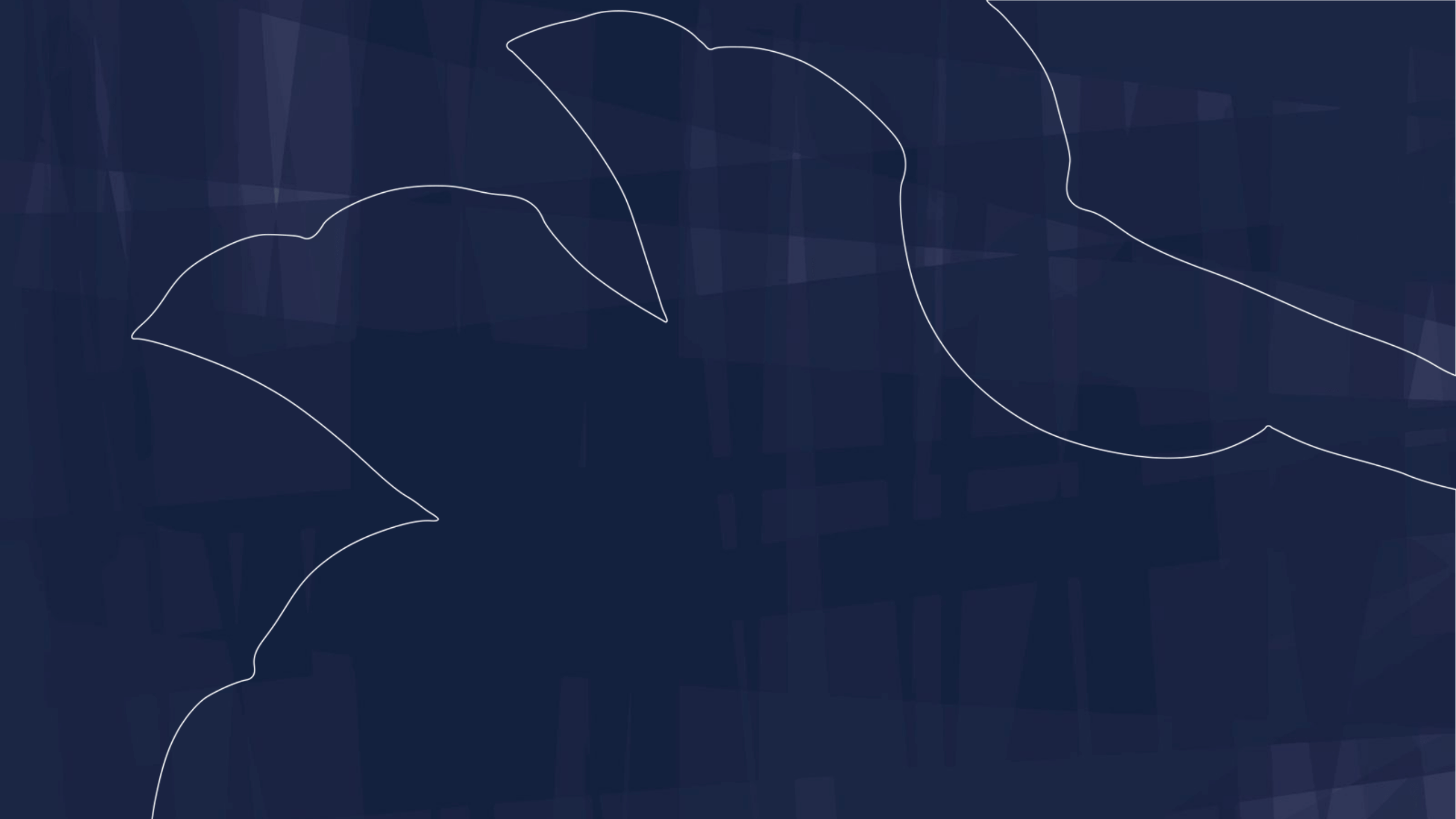Football without limits
The FA disability football strategy
2024-2028
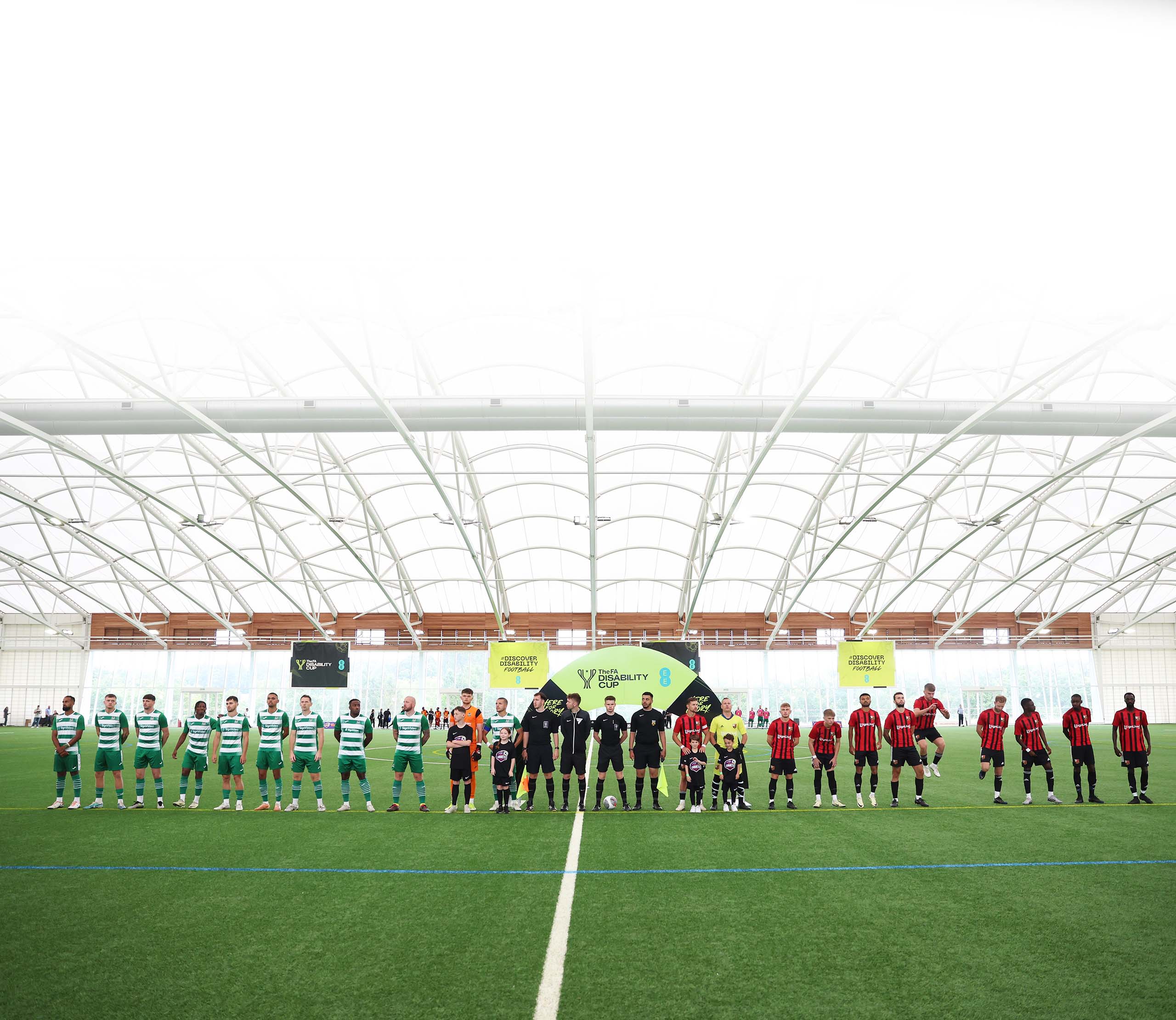
Driving positive change in para and disability football
Definitions:
In the strategy you’re reading, you’ll see reference to ‘Disability Football’ and at other times ‘Para Football’. Both terms cover all the football formats for Disabled people. However, ‘Disability Football’ is predominantly used in the grassroots game. Conversely, ‘Para Football’ is the common term in the elite game, i.e. with the Talent Pathway you’ll read about and at international level. For clarity, ‘Para’ is short for ‘parallel’, i.e. running alongside the grassroots game.
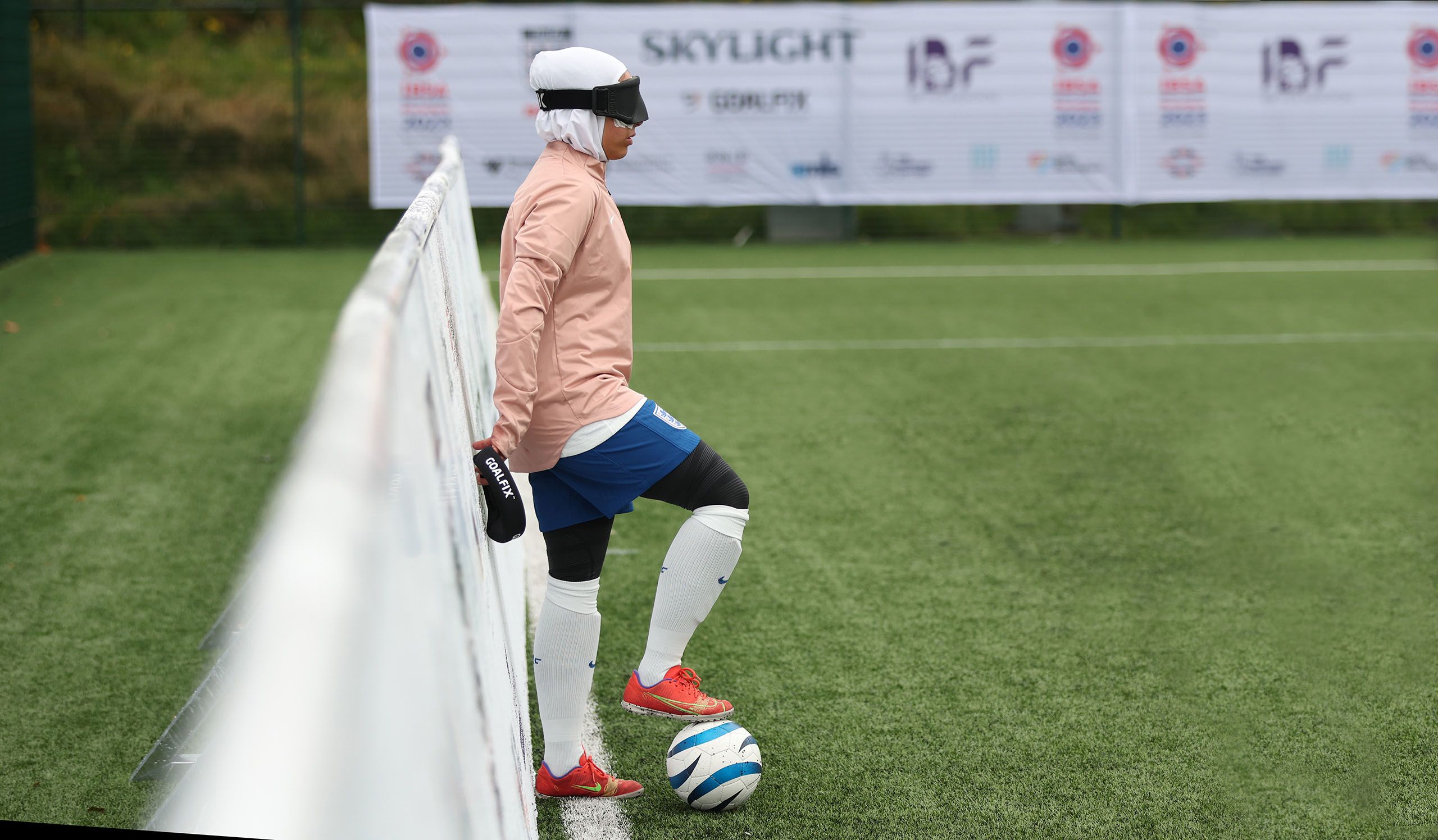
Foreword
Welcome to the next step on our journey
In 2021, our Football Your Way plan for Disability Football in England refocused our efforts to ensure the game can be accessed, enjoyed and played by all.
Three years on, and our inspirational England Para teams have achieved podium finishes on the world stage. We have also increased participation at grassroots and built an enhanced coaching pathway. But there is still work to be done to match our ambition to take Disability Football to the next level.
Our new strategy is the next step on our journey as we continue to do everything within our power to create a game free from discrimination. To achieve this, we have built our long-term strategy around:
- Providing Disabled people with greater access to participate in football by increasing the number and variety of opportunities to play.
- Maintaining The FA Disability Cup as the premier competition across the impairment-specific formats of the game, and a key event in the national football calendar.
- Increasing the number of players transitioning to England Para teams while having a positive and impactful pathway experience.
- Producing ‘ready to win’ England Para teams competing in high-quality international competitions.
- Making England Football Learning the go-to destination for coaches of disabled footballers – and coaches with an impairment – who are seeking personal development.
- Driving countrywide support and recognition of England Para teams, visibility of grassroots Disability Football, and awareness of grassroots participation opportunities.
- Securing additional funding and investment to support Disability Football, The FA Disability Cup, and England Para teams winning major tournaments.
Our message is simple. If you have a disability, there’s an opportunity for you to play the game. Whether that’s playing for pure enjoyment or aspiring one day to play for England. It is your choice.
We look forward to working collaboratively with our partners including Sport England, wider football stakeholders and commercial partners to unlock groundbreaking change for Disability Football.
Baroness Sue Campbell DBE
FA Director of Women’s Football and Strategic Lead for Disability/Para Football
Yasir Mirza
FA Equality, Diversity and Inclusion Director
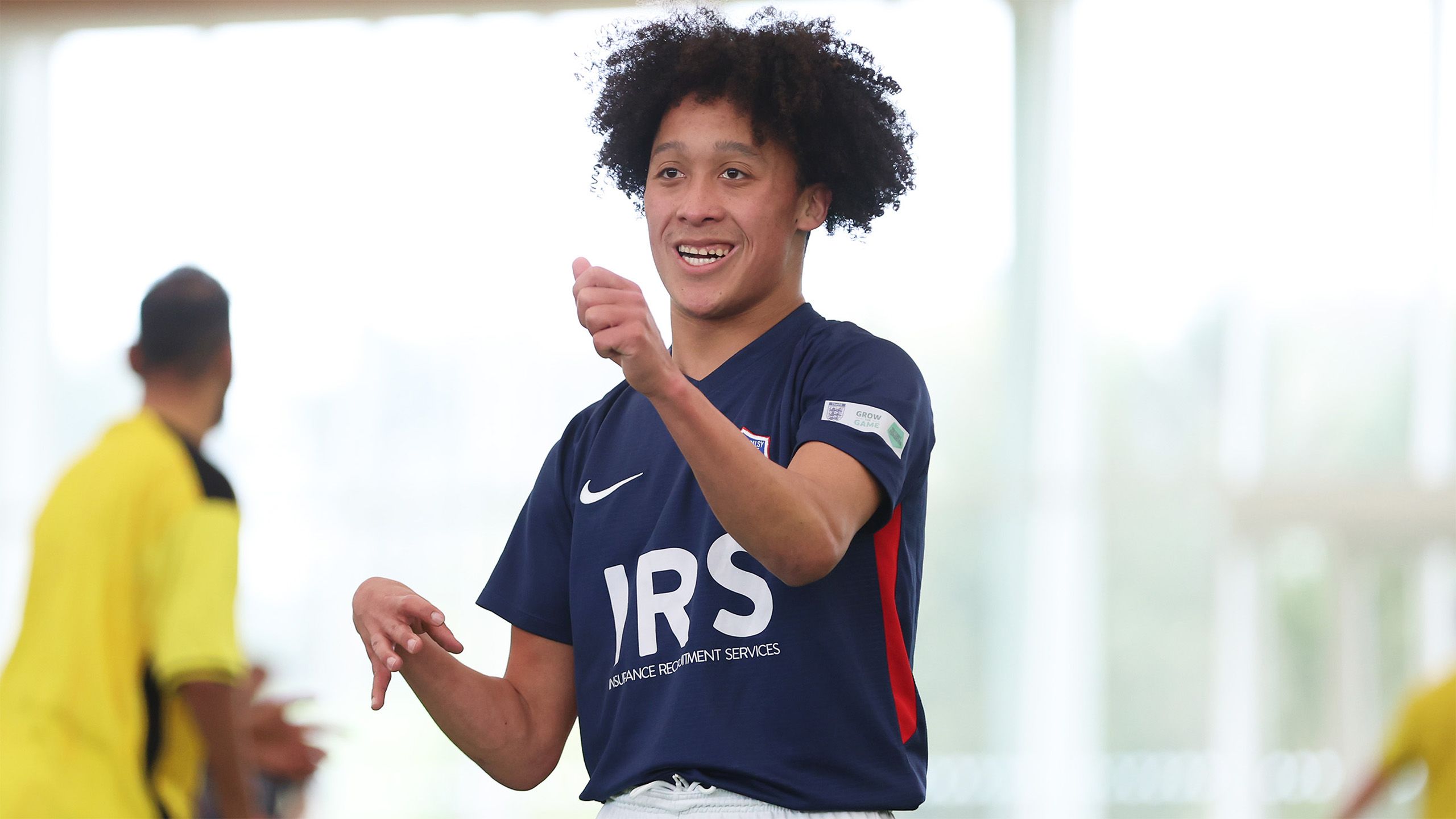
Colin Chaytors
Chair, The FA Disability Football Committee
At the forefront
This strategy sets out The FA’s commitment to being at the forefront of changing perceptions and social barriers for Disabled people to play football, with the clear message that football is for all.
Great progress has been made over the last three years and we have already seen the benefits of having a clear framework for Disability Football.
From increasing levels of participation across grassroots, to our England Para Teams shining on the world stage, there has never been such an exciting time to be involved in the game.
I warmly welcome this new strategy and hope it will inspire many more people to get involved and provide a genuine choice for everyone to play, regardless of age, background or ability.
James Kendall
The FA Director of Football Development
Huge growth potential
Our mission is to make grassroots football more inclusive for Disabled people, on and off the field.
By providing Disabled people with greater access to participate in football and increasing the variety of opportunities to play, we want to provide genuine choice for all.
We have teamed up with the Activity Alliance to set up training workshops and toolkits to guide clubs on their inclusion journey. That’s alongside deploying a network of trained ambassadors to help clubs apply the toolkit and workshop learnings to their own Disability Football plans.
Our innovative sessional football programme – Comets – has been introduced specifically for Disabled children aged 5-11, while The FA Disability Cup goes from strength to strength and is becoming a key event in the national football calendar.
Disability Football still has huge potential for growth. We are committed to turning this potential into reality.

THE DISABILITY FOOTBALL LANDSCAPE IN ENGLAND
9.8m people
in England (17.7% population) are Disabled = 5.4m (18.7%) females and 4.4m (16.5%) males
(2021 census)
A significant ‘activity gap’ remains:
Disabled people are consistently twice as likely to be inactive compared to non-Disabled people (20.7% vs 40.8%)
(Sport England, Active Lives)
Only four in 10 (43%) Disabled people feel they have the opportunity to be as active as they want to be, compared to seven in 10 (69%) non-Disabled people. Yet 76% of Disabled people want to do more activity than they currently do
(Activity Alliance, Annual Disability and Activity Survey 2023-24)
Disabled people are half as likely
as non-Disabled people to agree that ‘sport’ is for someone like them (29% vs 64%)
(Activity Alliance, Annual Disability and Activity Survey 2023-24)
Covid-19 legacy and the cost-of-living crisis have exacerbated the issues:
Disabled people are more likely to consider sport and physical activity a luxury rather than a necessity.
Just over two-fifths of Disabled people (44%) agreed that when money is tight, the cost of being active is one of the first things they look to reduce.
Cost of living is disproportionately impacting Disabled women, younger Disabled people, ethnically-diverse Disabled people and Disabled people with five or more impairments.
(Activity Alliance, Annual Disability and Activity Survey 2023-24)
There are three pathways to play football that are open to Disabled people:
This pathway is for anyone who can play without adaptions to the rules.
This pathway is for players with a broad spectrum of impairments and health conditions.
This pathway is for players with the same type of impairments.
This pathway is for anyone who can play without adaptions to the rules.
This pathway is for players with a broad spectrum of impairments and health conditions
This pathway is for players with the same type of impairments.
Breakdown of opportunities to play (March 2024)
Activities in Sessional, Education and Team-based football comply with The FA safeguarding requirements to create player-centred, safe and positive environments for all.
Team-based football can be defined as football training, games and competitions with a set start and end date. Individuals play, as a team, in fixtures against other teams. Known as affiliated teams.
Sessional football can be defined as recreational, casual and social football that doesn’t include fixtures. Individuals’ commitment is defined by their lifestyle.
Special Educational Needs and Disability (SEND) resources are available for schools to access to support the engagement of young people with SEND in extracurricular education-based football clubs.
Team-based football can be defined as football training, games and competitions with a set start and end date. Individuals play, as a team, in fixtures against other teams. Known as affiliated teams.
Sessional football can be defined as recreational, casual and social football that doesn’t include fixtures. Individuals’ commitment is defined by their lifestyle.
Special Educational Needs and Disability (SEND) resources are available for schools to access to support the engagement of young people with SEND in extracurricular education-based football clubs.
Pan-disability is the largest of the two disability-specific pathways. However, impairment-specific football offers opportunities from grassroots through to elite international teams. Impairment-specific football comes in a range of formats, including those shown below, but there are not international teams for every format.
Overall, there are 2,103 affiliated Disability teams (March 2024) which can be broken down as follows:
Number of affiliated teams
Pan-disability leagues form the foundation of the disability competition structure and there is now a network of 42 such leagues across England, the majority of which are small-sided in format, playing fixtures monthly.
There are also national impairment-specific leagues for amputee, blind, cerebral palsy, deaf, partially-sighted and powerchair football.
Our national participation programmes provide sessional opportunities for players who are motivated to play purely for fun. There are 285 disability-specific sessional sessions (March 2024) broken down as follows:
Number of sessional opportunities
England Para teams’ overview
Blind1 Men’s
4th
Blind Women’s
8th
Partially-sighted2 Men’s
2nd
Powerchair
2nd
Cerebral Palsy Men’s
4th
Deaf Men’s
10th
Deaf Women's
3rd
There are seven senior England Para teams in the following Disability Football formats:
Blind (men and women), Partially-sighted (men), Powerchair (mixed gender), Cerebral Palsy (men), Deaf (men and women)
We also run developmental groups and squads in impairment groups.
Historically, our teams have performed well at major European and World tournaments, with several strong performances in 2023-24. We enter this next strategy cycle with an ambition to reach the podium in at least 70 per cent of the major international tournaments that we enter, across all teams.
¹ Blind football: Players will range from having no light perception to some light perception, but not enough to recognise shapes of different objects.
Internationally, players must be classified as B1 (completely blind).
Domestically, the National Blind Football League have introduced a B1b classification which allows partially-sighted players with a low B2 classification.
²Partially-sighted football: Players have some level of sight.
Internationally, outfield players must have a sight classification of B2 or B3.
Domestically, players can also take part if they have a classification of B4 or B5.
Note: ‘visually impaired’ is a generic term for all sight loss
For more information about sight classification, visit britishblindsport.org.uk
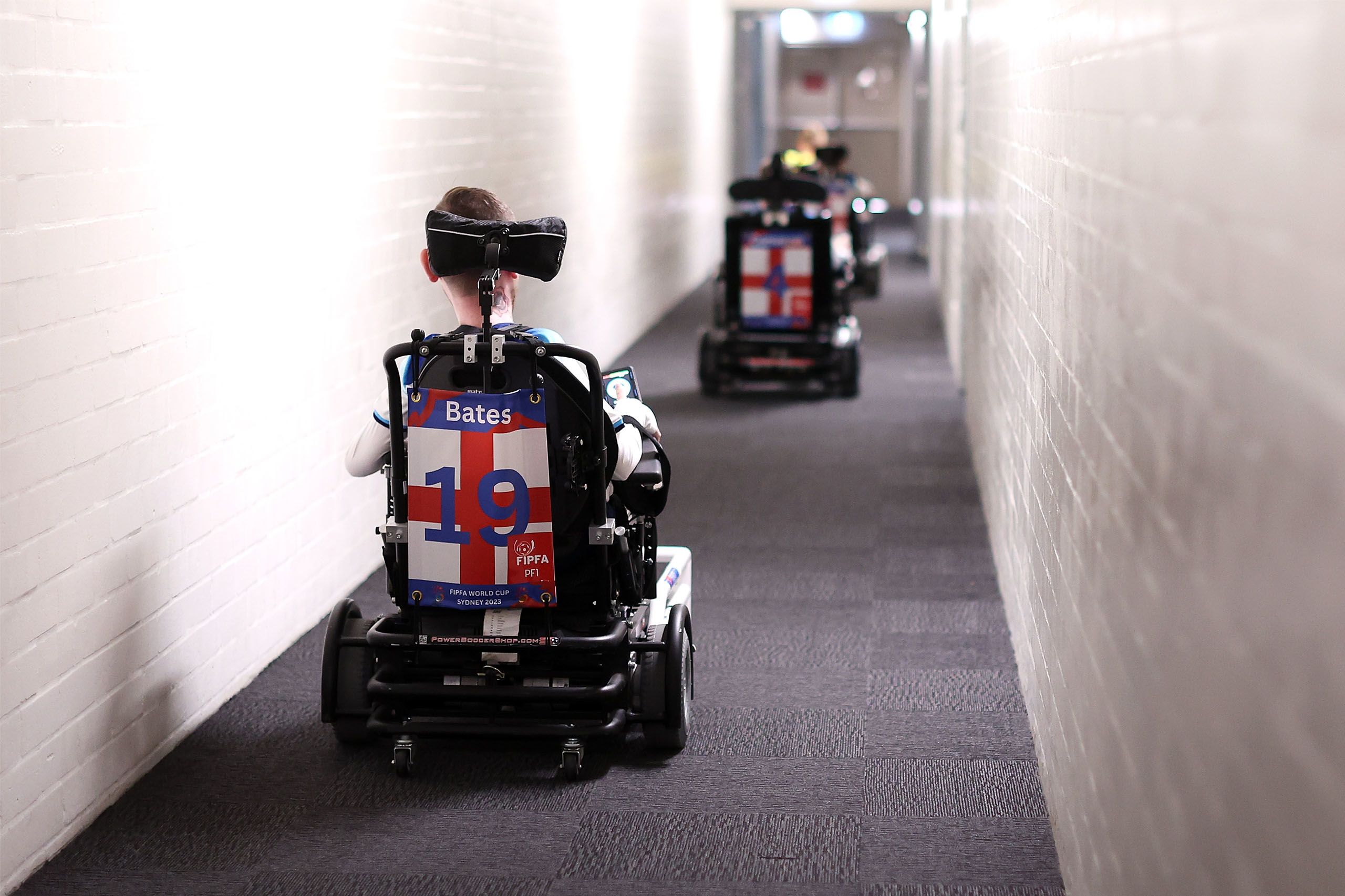
OUR SEVEN PRIORITIES AND THEIR GOALS
The FA’s safeguarding policies and procedures underpin all objectives and tactics in the seven priority areas. Embedding safeguarding best-practice ensures safe, fun and inclusive football opportunities for all.
(Click below to jump to priority details)
Disability football participation
The FA Disability Cup
Para talent pathway
England para teams
Coach development
Marketing & communications
Partnerships
Disability football participation
The FA Disability Cup
Para talent pathway
England para teams
Coach development
Marketing & communications
Partnerships
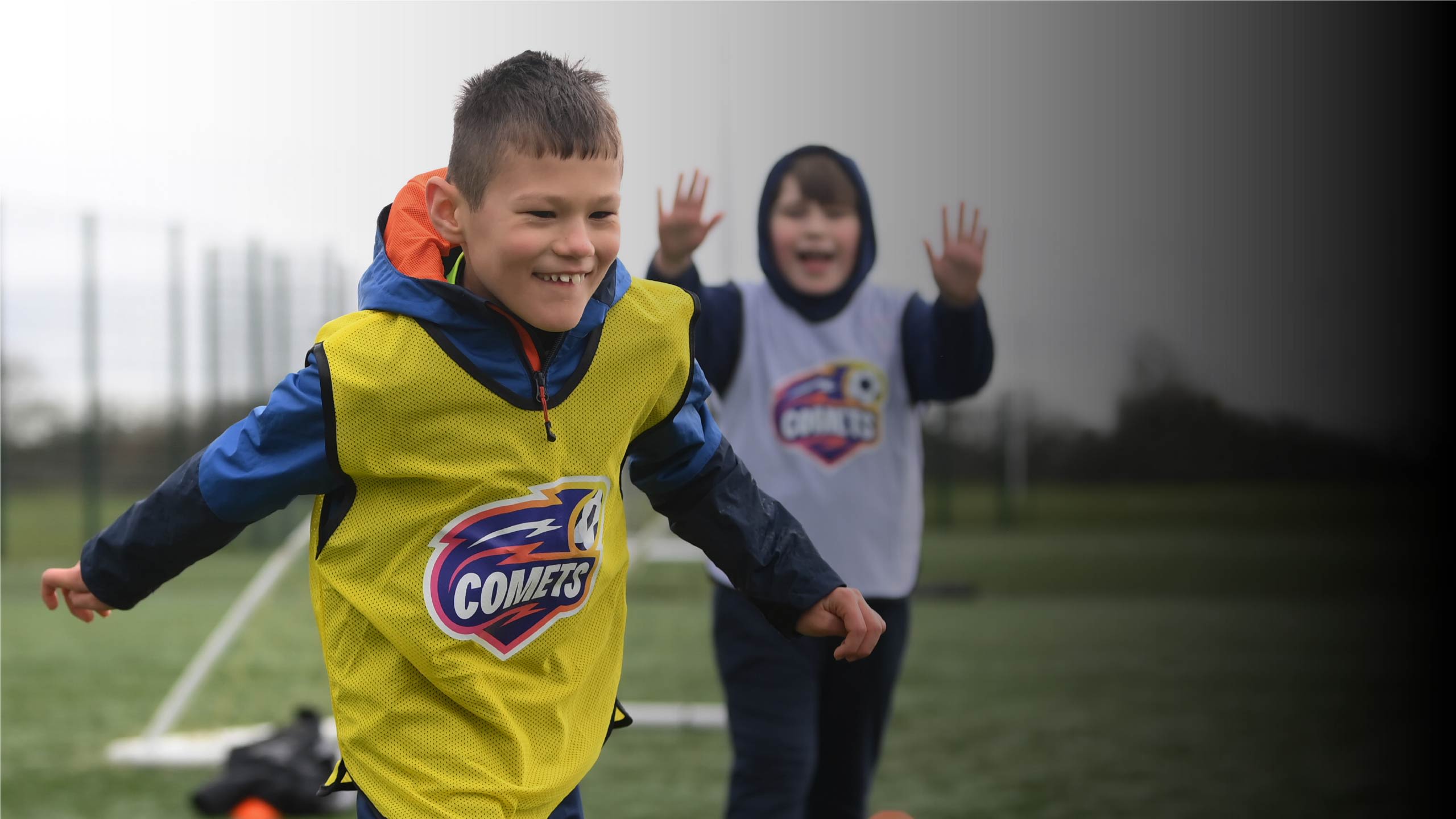
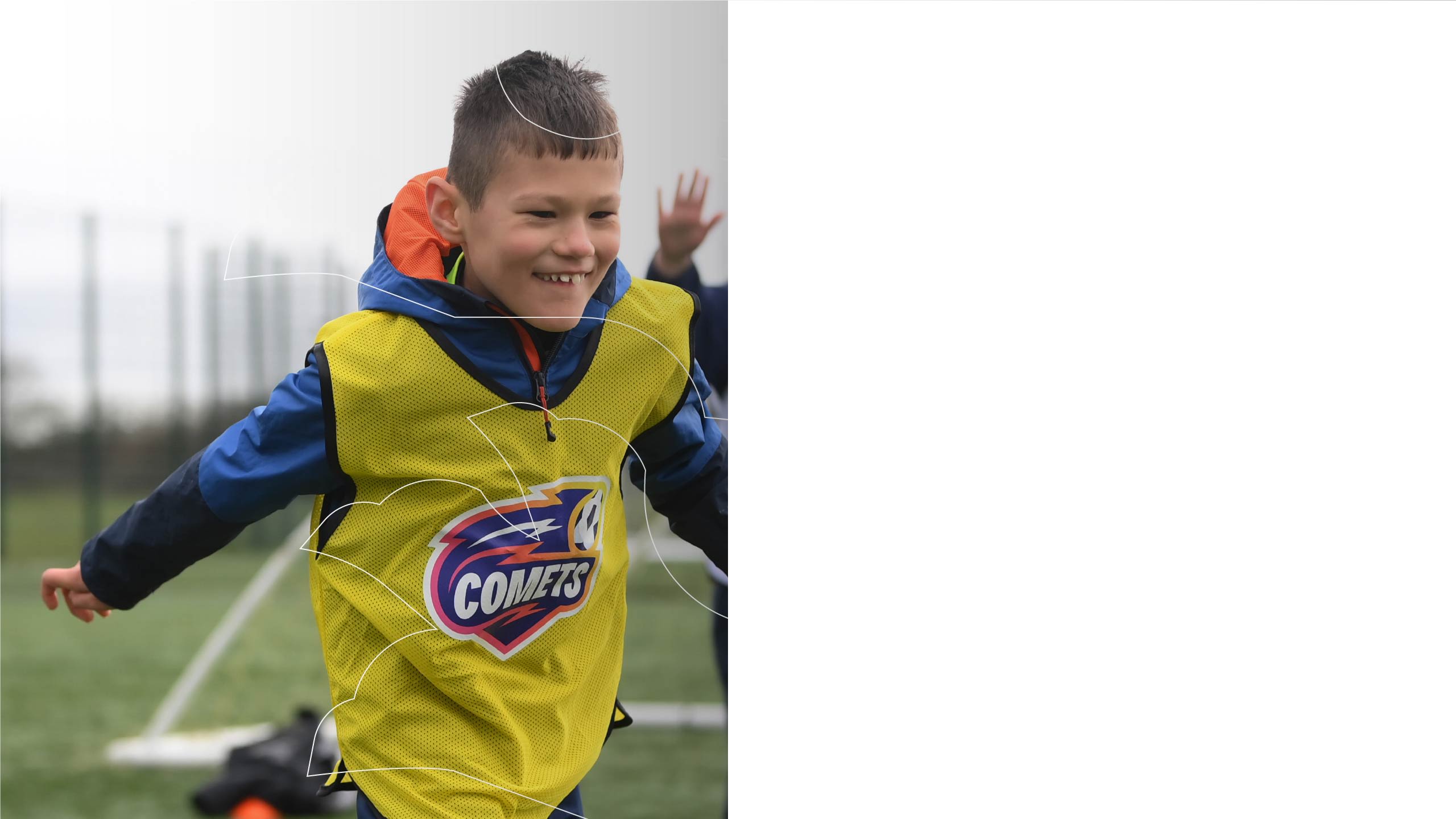
Priority 1:
Disability football participation
2024-28 goal:
To provide Disabled people with greater access to participate in football by increasing the number and variety of opportunities to play.
What the GAME IS SAYING:
“I have something to look forward to for the weekend, to be part of a team that grows and trains together... you’re there to have fun and there’s no stress.”
Adult disabled footballer
“She’s just such a happy kid playing football. A kid that has so many challenges in life can step onto a football pitch and just be a kid. Just be herself and enjoy herself.”
Parent of Imogen, a deaf and autistic footballer
Disabled people should have the opportunity to experience and enjoy football whatever their ability level, whether that be in mainstream, pan-disability or impairment-specific football. The important thing is that they have a choice.
It’s fantastic to see participation levels are on an upwards trend, but we know there is more to do. Our plans for the next four years will see a further upscale to the roll-out of our recently launched, insight driven programmes such as Comets and Journey to Inclusion training, while we will create new initiatives where gaps exist. We are committed to supporting schools and grassroots football clubs to grow their Disability provision on and off the pitch to ensure that football’s doors are open to all.
Phil Heap
National Development Manager (Disability Pathway), The FA
Key success MEASURES:
- Increase participation by 47% by offering 3,611 opportunities to play for Disabled people of all ages across all Disability Football formats by June 2028.
- Increase the number of players by 37% across all Disability Football formats, reaching 28,300 registered disabled players by June 2028.
We will:
¹ Comets is The FA’s sessional football programme for children aged 5-11.
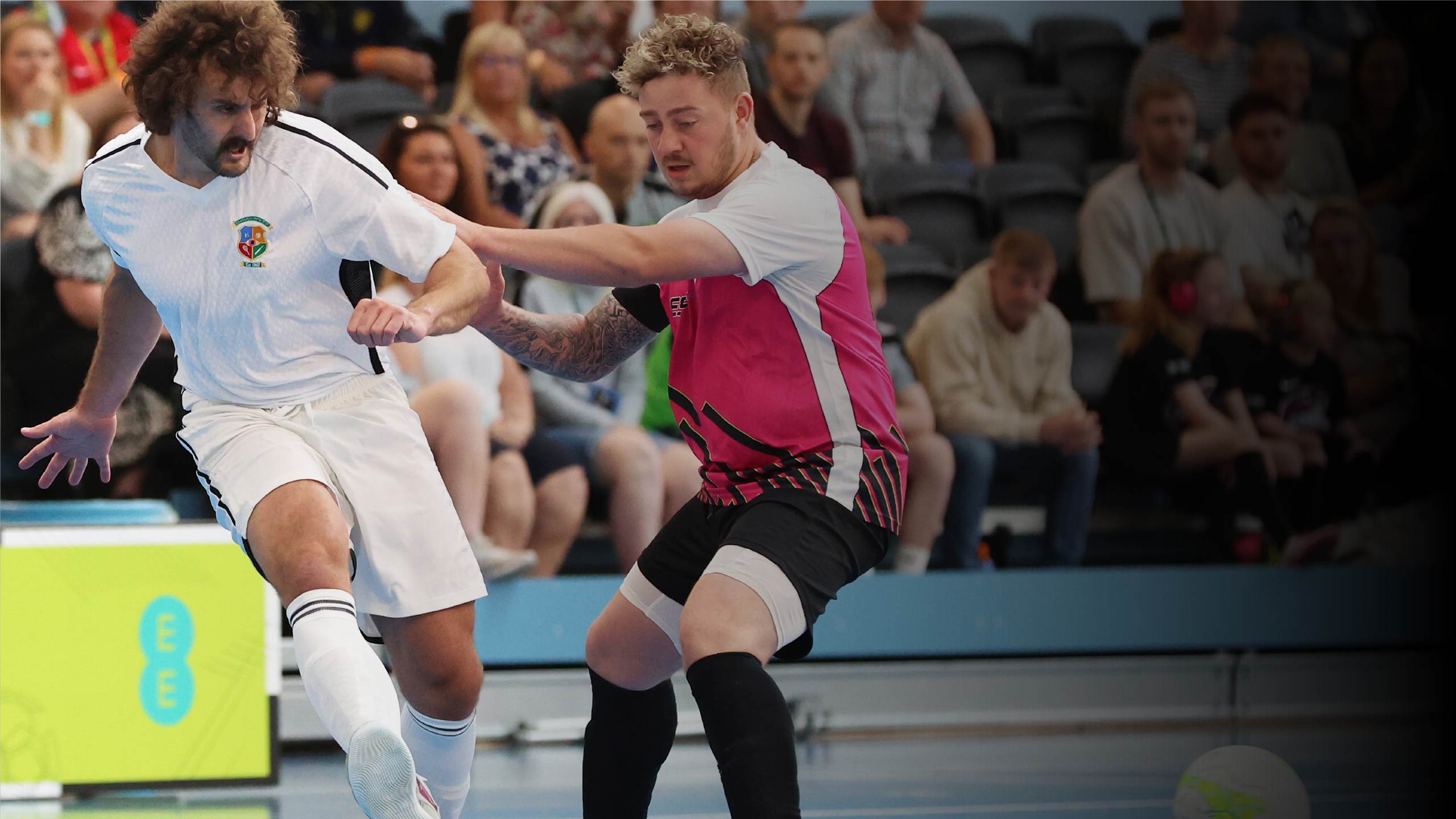
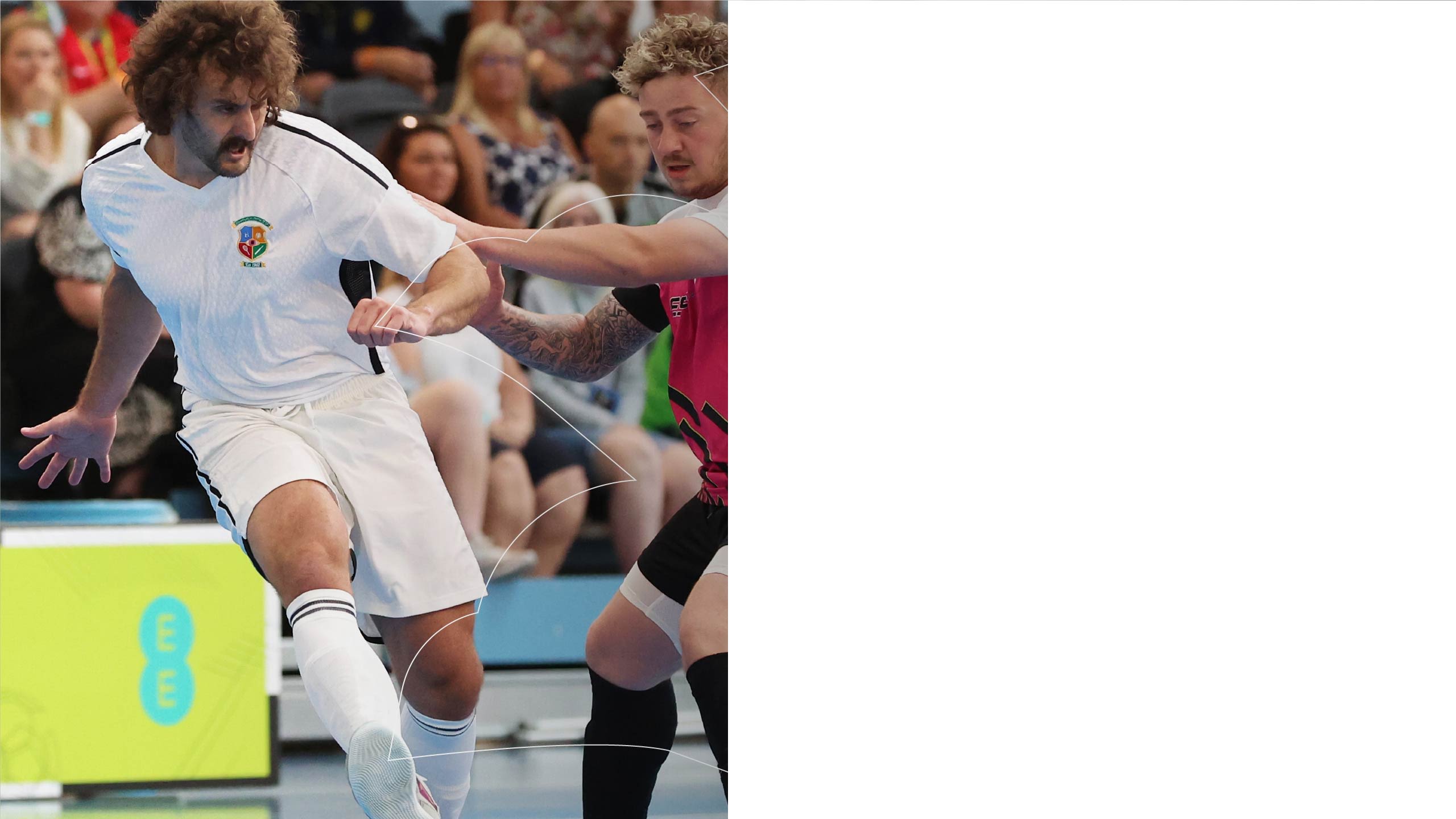
Priority 2:
The FA Disability Cup
in association with
2024-28 goal:
To maintain The FA Disability Cup as the premier competition across the impairment-specific formats of the game, and a key event in the national football calendar.
What the GAME IS SAYING:
“It was the best day of my life!”
Deaf finalist
“What a special feeling to be part of this event where all impairments groups are playing on the same weekend on live TV.”
Partially-sighted finalist
We will continue to utilise The FA Disability Cup to showcase the skills and extraordinary passion of players at the top of their game, while also being committed to develop the event further. We will strive to offer everyone involved the best experience possible, while raising awareness of participation opportunities, inspiring others to take their first step into football
Wendy Booth
National Development Manager, The FA
Key success MEASURES:
- Consistently reach The FA Disability Cup attendance capacity with 100 per cent of available spectator tickets issued.
- Explore potential broadcast partnerships for The FA Disability Cup.
- Drive visibility and engagement of The FA Disability Cup by increasing social and media reach each year.
- Include a female-specific showcase at The FA Disability Cup by 2028.
We will:
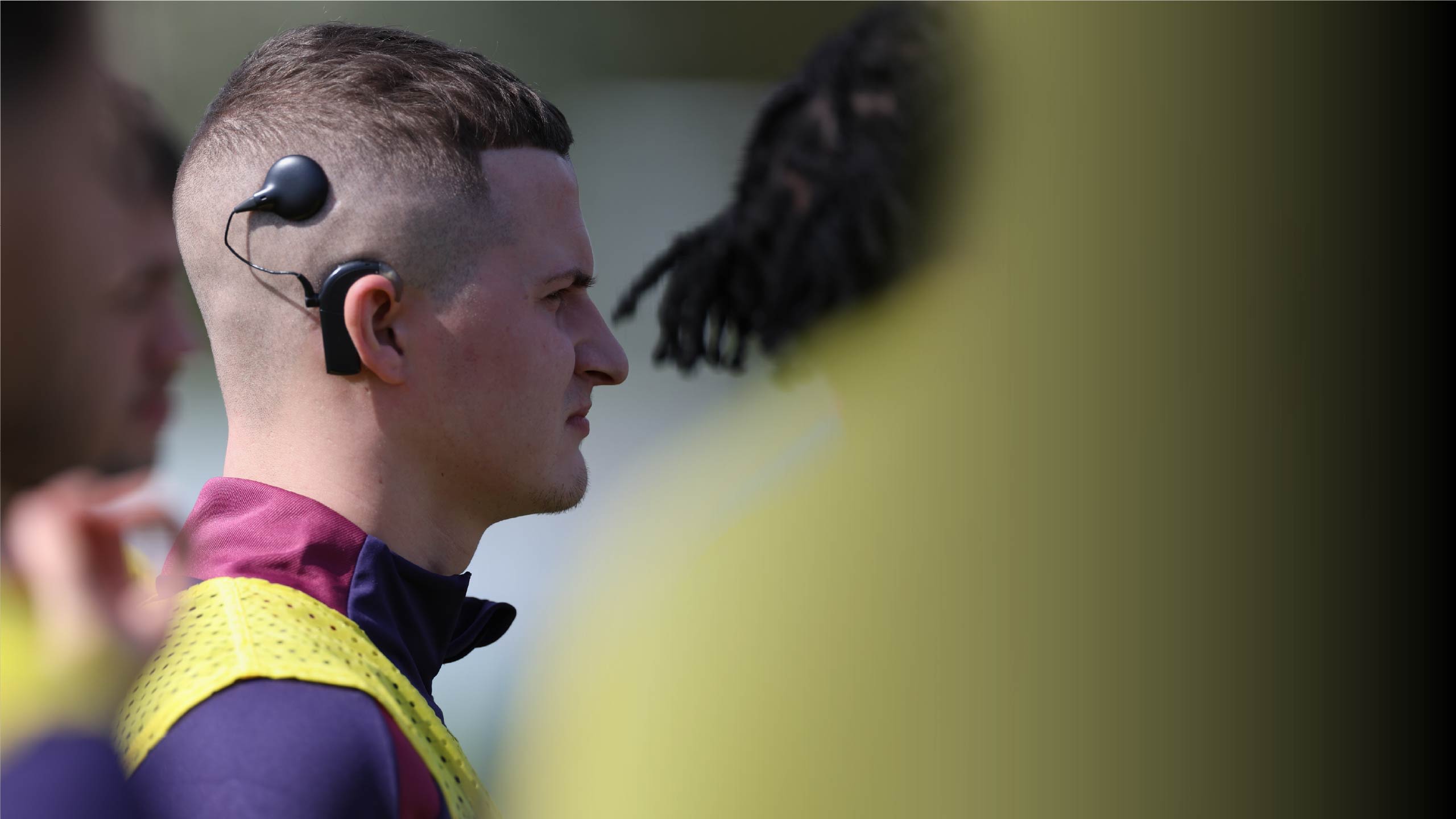
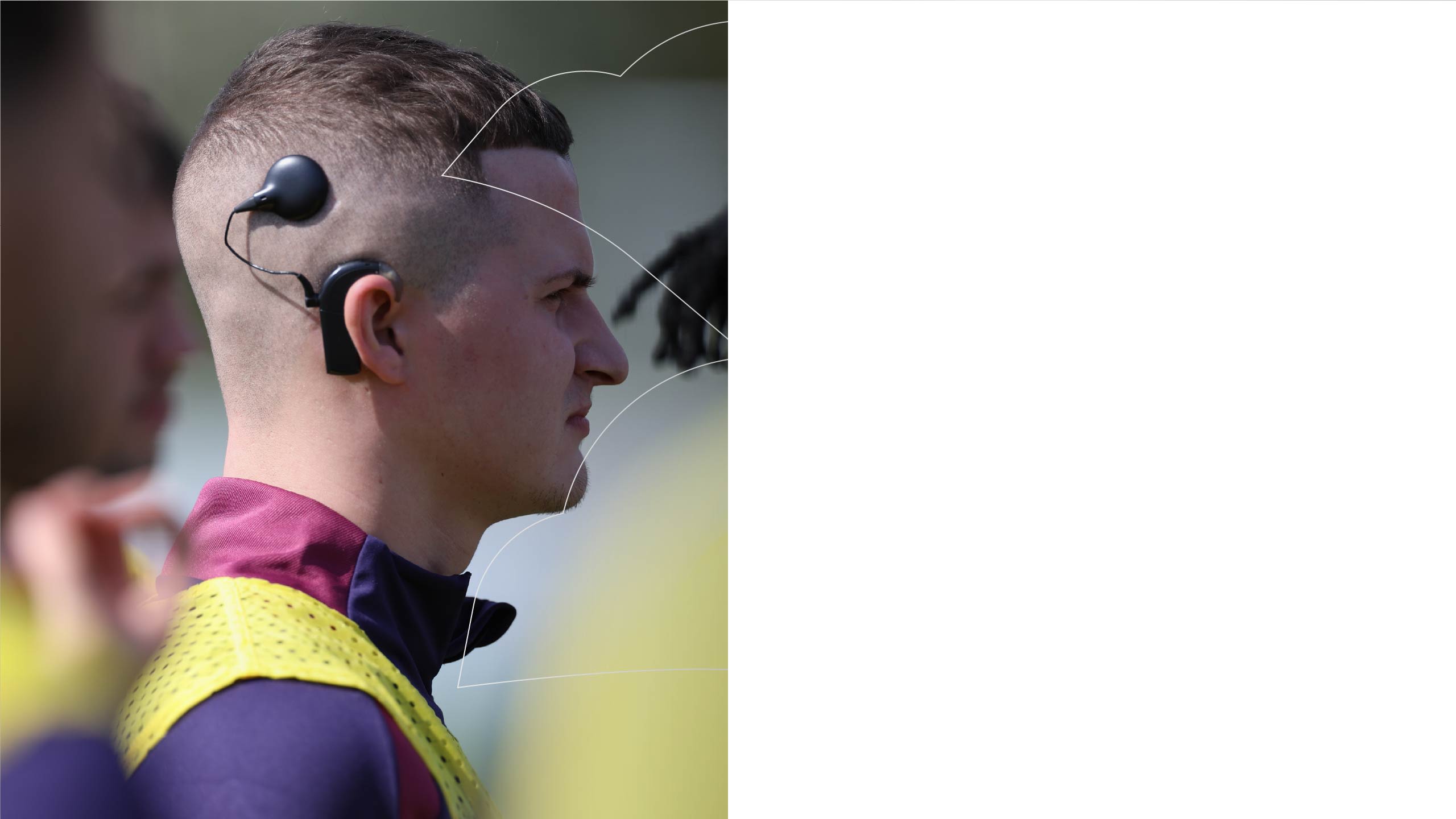
Priority 3:
Para talent pathway
2024-28 goal:
To increase the number of players transitioning to England Para teams while having a safe, positive and impactful pathway experience.
What the GAME IS SAYING:
“To see our son come through the Talent Pathway and play for his country has made us and our family immensely proud. It’s amazing to see the progress he has made on the Talent Pathway both as a person and a player.”
Parent
“I really enjoyed the coaching sessions and had some great coaches help me. I was getting feedback from both coaches and they were challenging me throughout the sessions. The coaches were trying to improve my game which I felt was important, as I am eager to progress and improve. I felt valued and included in all the discussions and drills. I can’t wait to come to the next one.”
12-year-old player
We will create an inclusive and sustainable Talent Pathway, which ensures any and every young player can achieve their potential. The Pathway is open and flexible to accommodating players’ needs, while feeling comfortable asking players about themselves and how we can support them to train and perform optimally.
Steve Daley
Talent Pathway Manager – Para Football, The FA
Key success MEASURES:
- Transition ten players per season from talent programmes to England Development and Senior squads.
- Increase number of players from Index of Multiple Deprivation (IMD) areas in Regional and National Talent Programmes.
We will:
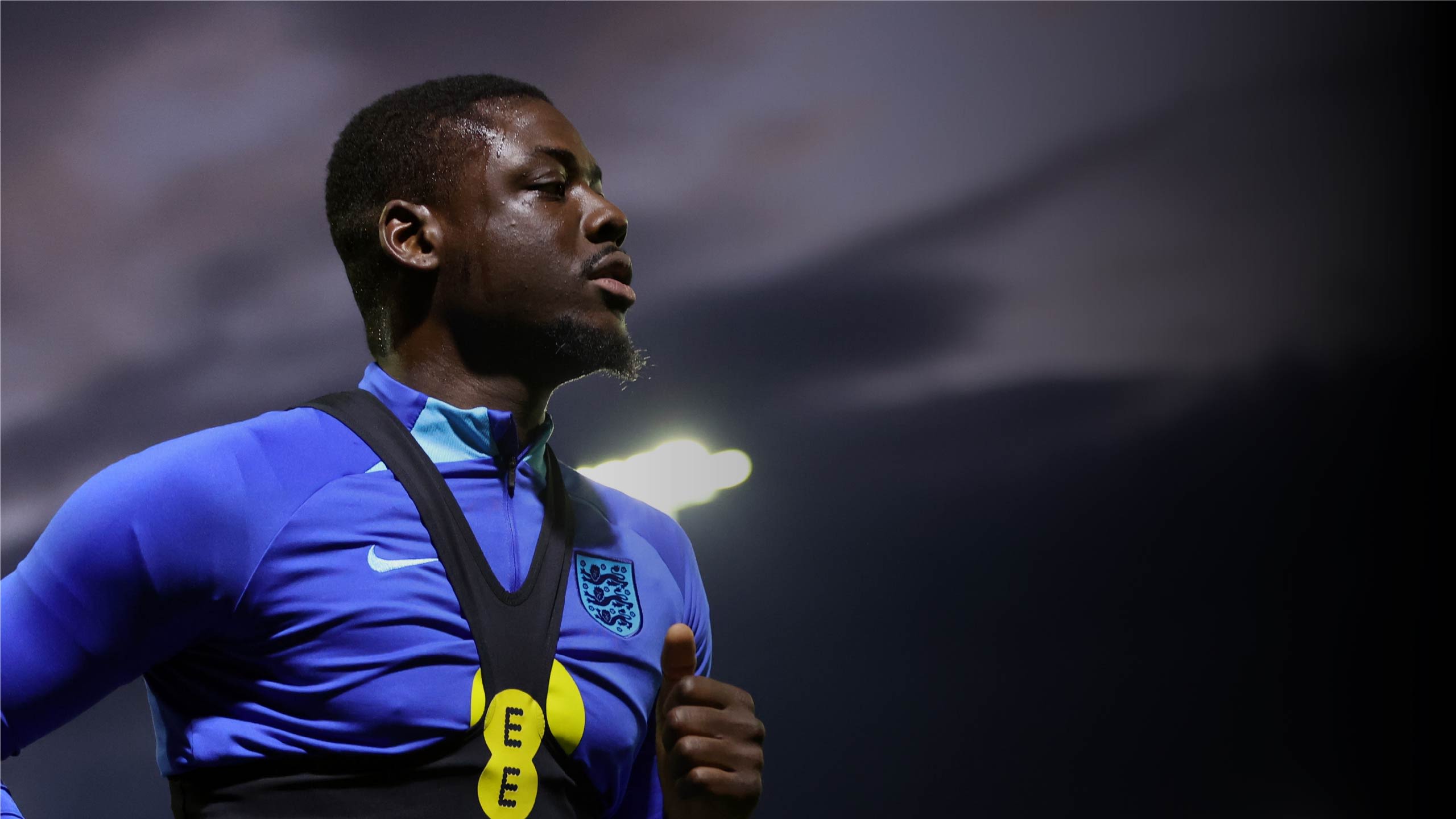
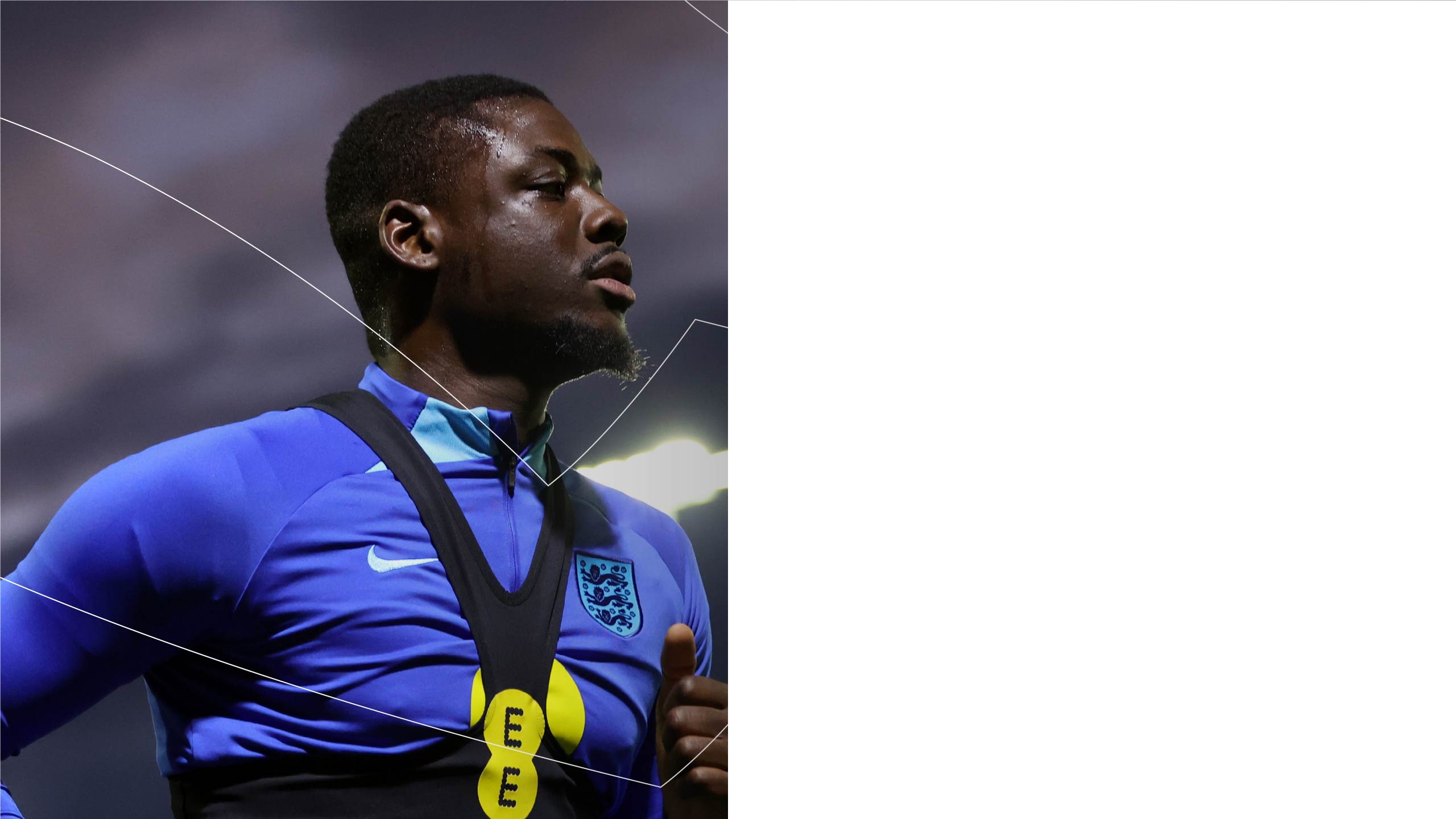
Priority 4:
England Para teams
2024-28 goal:
To produce ‘ready to win’ England Para teams competing in high-quality international competitions.
What the GAME IS SAYING:
“Being able to meet and mix with the other teams has created the feeling that we are like one big team, even though we’re from different Para squads.”
Player, Blind Women’s Squad
“When I play football, I feel so happy and all the stress from the world goes away. I am just happy. Without CP football, I don’t know what I would have ended up doing.”
Player, CP Men’s Squad
As The FA, we have an opportunity as well as a significant responsibility to make a real difference for Disabled people. Through the ongoing development of a high-performance landscape on the Para Football programme, we want to support our players and coaches to be the very best they can be. We believe that this leads to world-beating performances that can inspire the next generation of ambitious Para footballers to play for England.
Cath Gilby
Head of Para Performance, The FA
Over the last few years, there has been a real shift in momentum in England Para Football, especially from a performance point of view. The programme shows a genuine interest in players and teams, and we have a voice through the Player Rep Group. The biggest change for me is everyone being accepted as individuals, and there being an understanding of our lives outside of football.
John McDougall
Captain Partially-Sighted Men’s Squad
Key success MEASURES:
- 70 per cent of senior Para teams achieving medal success at European and/or World level.
- Achieve greater disability and ethnicity representation within the Para Football workforce through positive action initiatives.
We will:
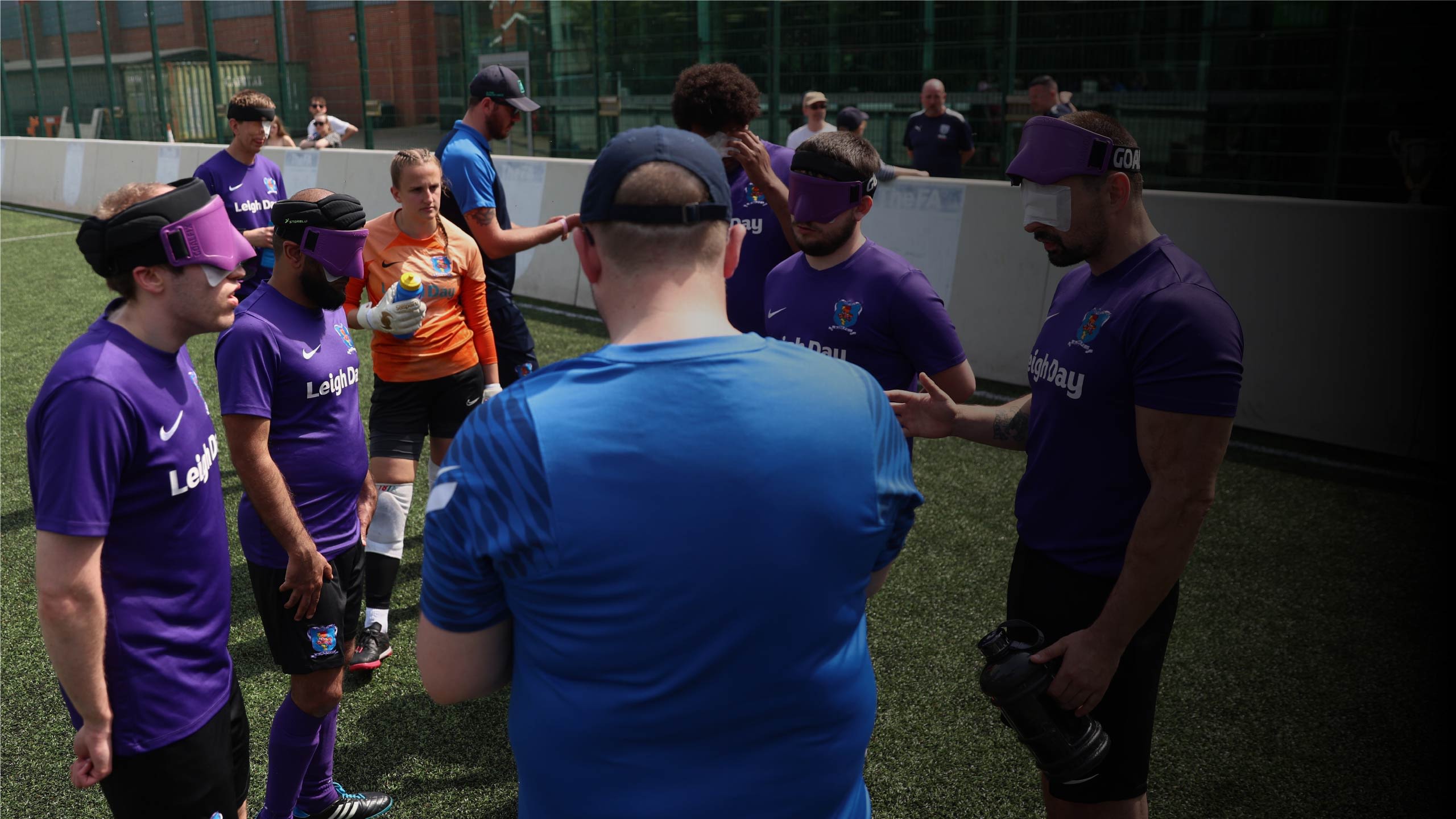
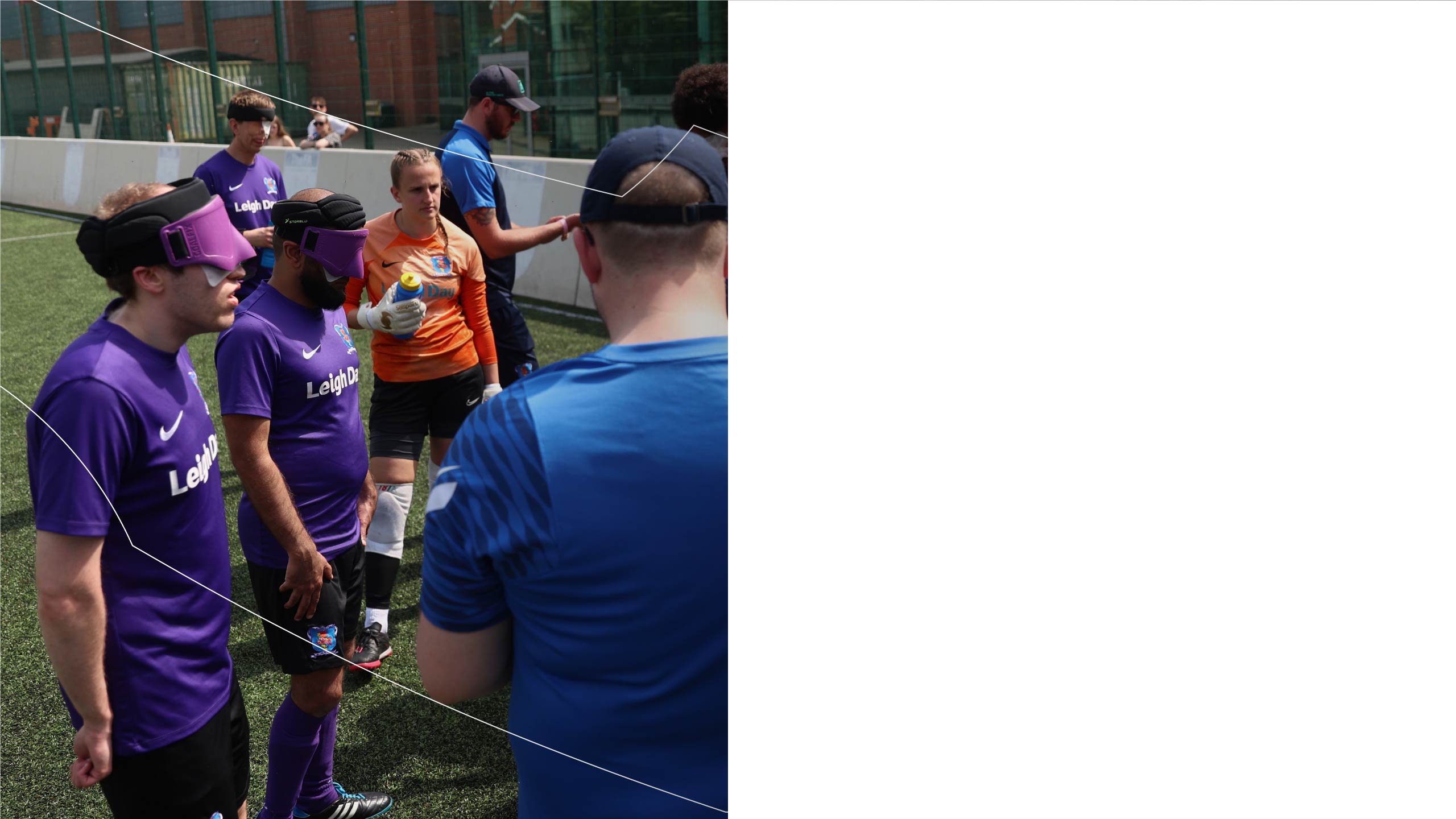
Priority 5:
Coach development
2024-28 goal:
To make England Football Learning the go-to destination for coaches of Disabled footballers – and coaches with an impairment – who are seeking personal development.
What the GAME IS SAYING:
““I have been able to access a wide range of support from The FA, most recently through a Disability Coach Mentor who provided me with 1:1 support on the pitch to help me understand the needs of my players. Alongside this, the programmes I have attended were really engaging and helped me understand how to help the players within my own coaching environment.”
Volunteer Grassroots Disability Football Coach
Coaching plays a fundamental role across the Disability and Para game and we are committed to supporting coaches by providing a wide range of development opportunities that will allow all players to thrive. Similarly, we will provide enhanced support to coaches with an impairment and continue to drive our work to ensure equal opportunities for all.
Dan Clements
Head of Coach Development, The FA
Key success MEASURES:
- Increase the number of Disabled learners completing an entry-level core coaching qualification (Playmaker or I2CF1).
- Increase the number of learners completing the Introduction to Coaching Disabled Footballers’ course.
- Drive the satisfaction and engagement rate of England Para team coaches with their high-performance coach development programme.
1I2CF = Introduction to Coaching Football course.
We will:
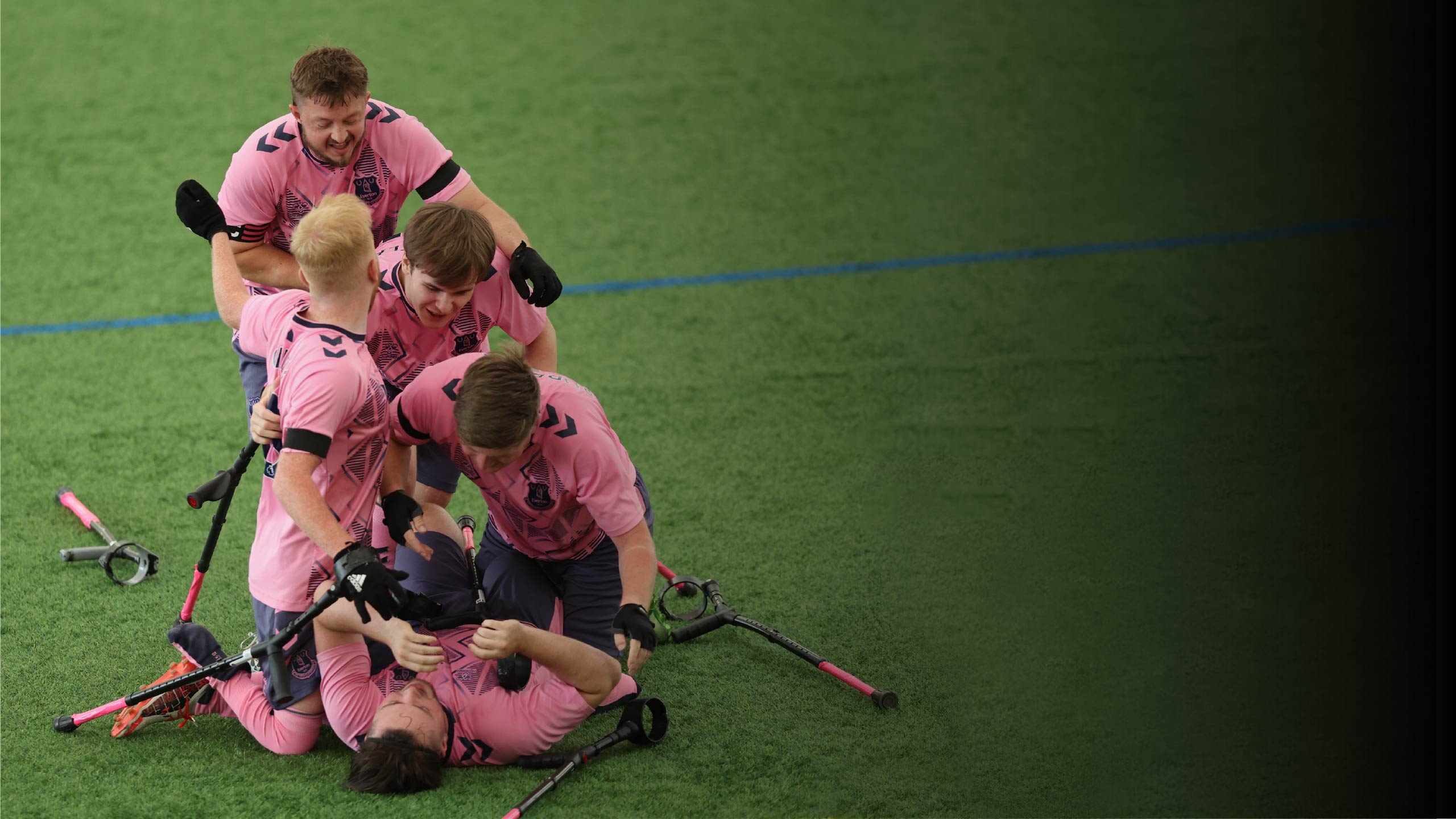
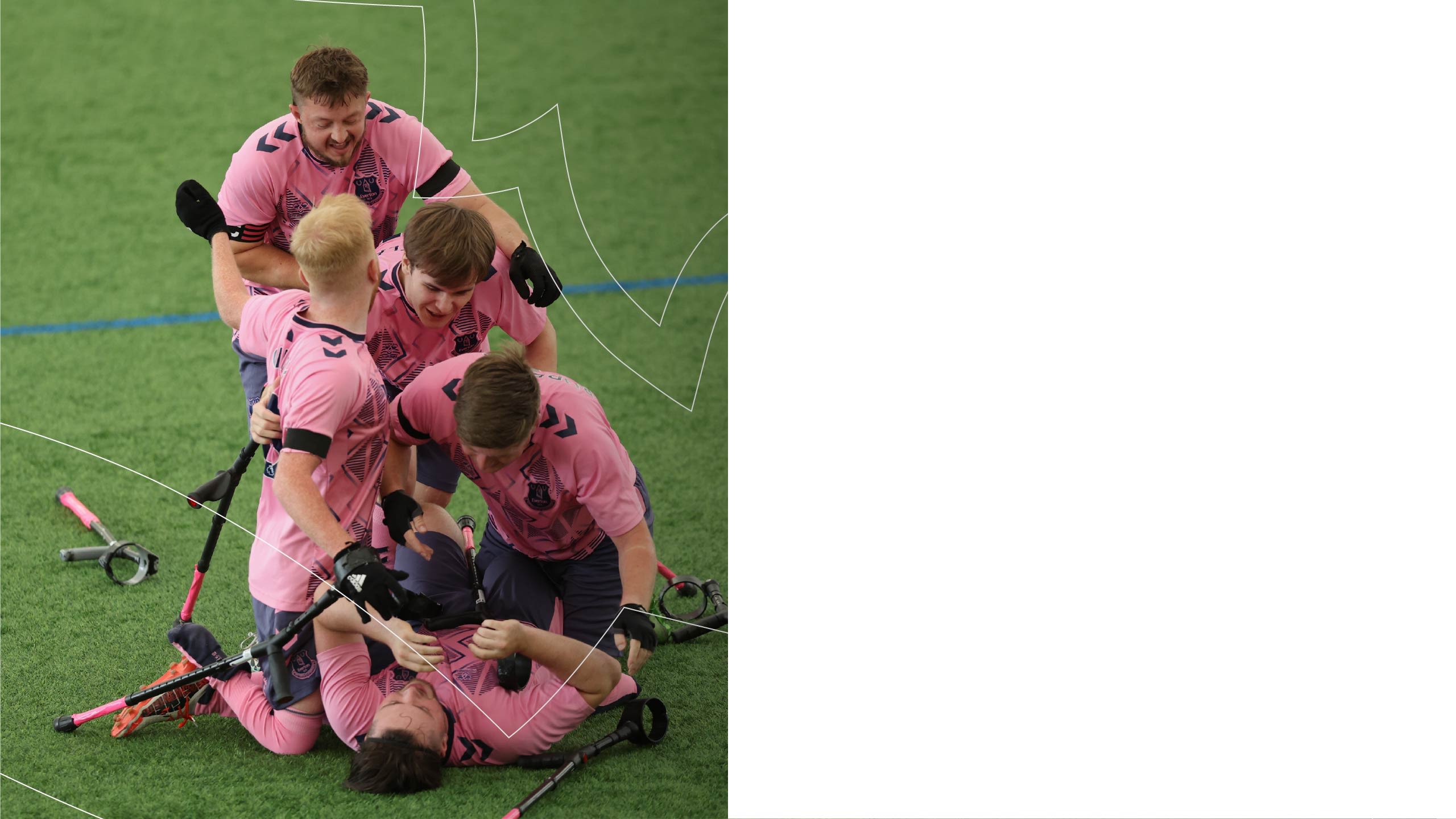
Priority 6:
Marketing & communications
2024-28 goal:
To drive countrywide support and recognition of England Para teams, visibility of grassroots Disability Football, and awareness of grassroots participation opportunities.
What the GAME IS SAYING:
“Thanks to the increased spotlight through media, marketing and communications, The FA has brought Para Football out of the shadows. From showcasing the unbelievable talent across our England teams, to helping find new players wanting to start their footballing adventure, the future is an exciting one.”
Matt Crossen, Captain Cerebral Palsy Men’s Squad
“It’s brilliant to see young players coming through the pathway being inspired by our England Para players. The increased exposure through the media and on social media through England channels has certainly helped raise the profile of our players, and we’re seeing a real desire from the next generation to follow in their footsteps.”
James Watkins, FA Senior Technical Performance Manager
Since launching our Football Your Way plan, we’ve seen Disability Football go from strength to strength.
Over the last four years, we’ve elevated our output around England Para teams, using their stories to inspire the next generation of players, and we’ve continued to shine a light on the brilliant work throughout grassroots Disability Football, from The FA Disability Cup to Comets.
Through our new ambitious strategy, we want to help take Disability Football to the next level, continuing our journey to inspire others and promoting opportunities for all to play the game.
Greg Sullivan
Brand Lead - England teams, The FA
Key success MEASURES:
- Double national awareness of England Para teams and players.
- Double the engagement with England Para and grassroots Disability content.
- Double the signposting and promotion of opportunities for Disabled people to play football.
We will:
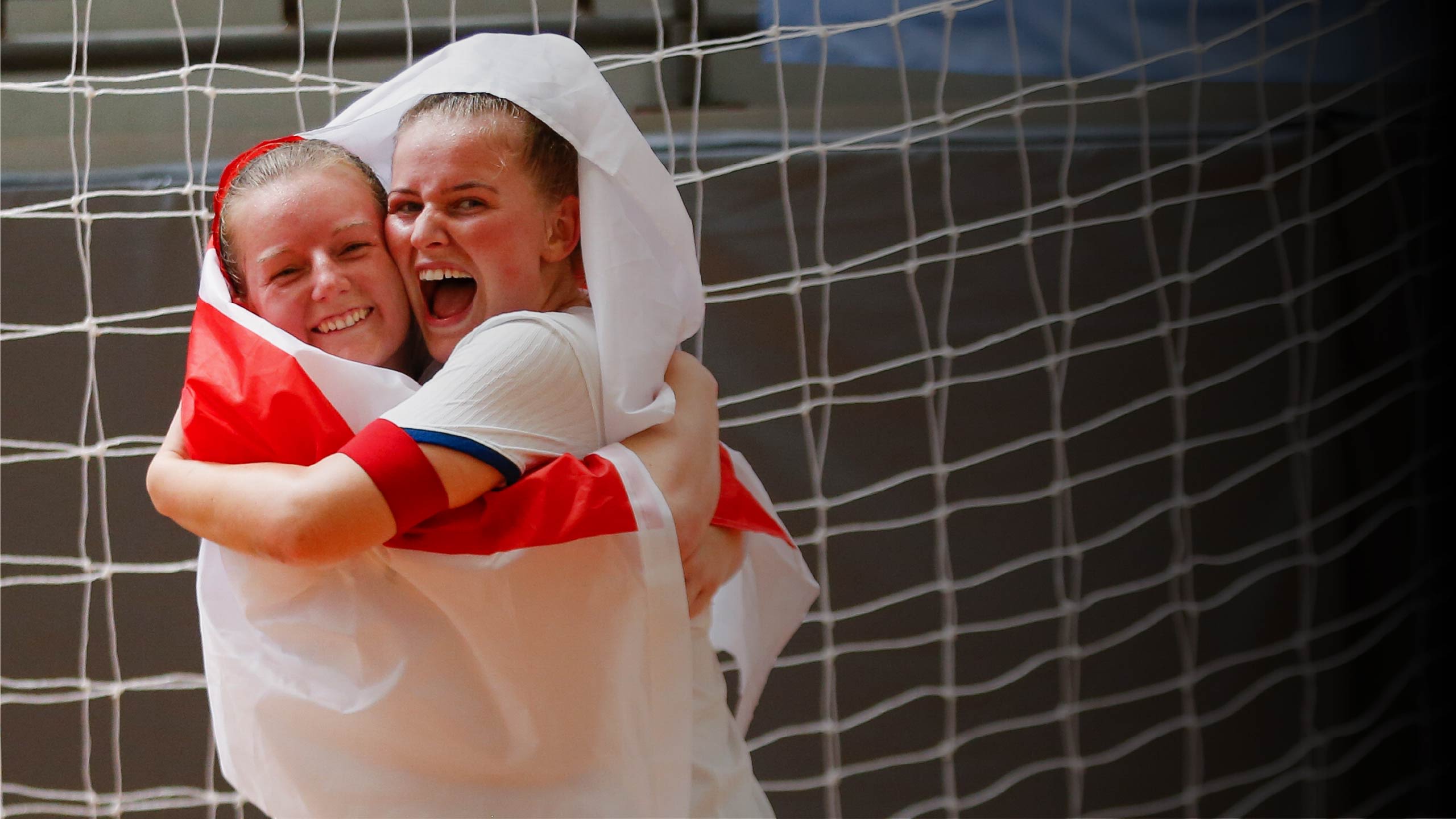
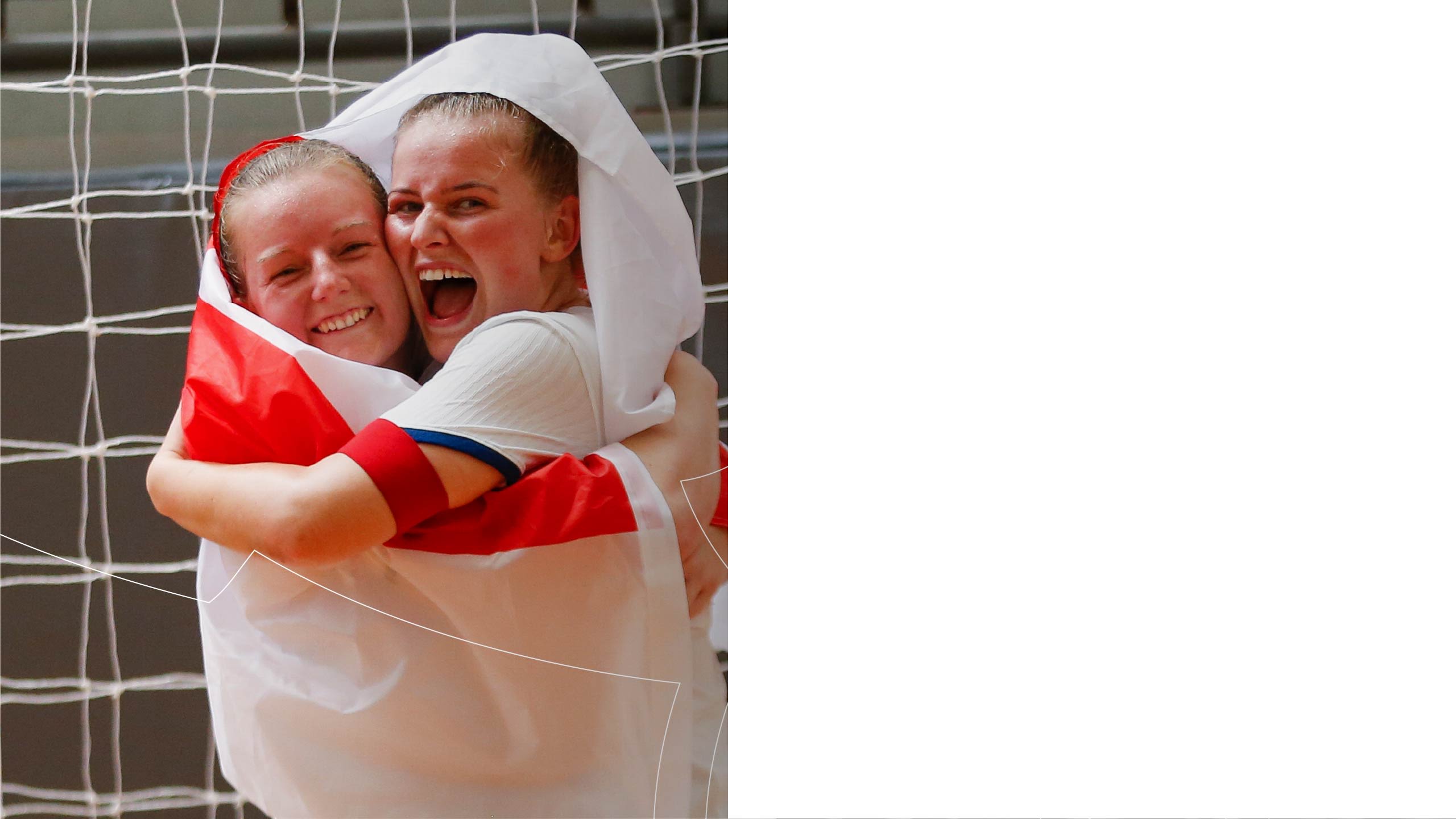
Priority 7:
Partnerships
2024-28 goal:
To secure additional funding and investment to support Disability Football, The FA Disability Cup, and England Para teams winning major tournaments.
What the GAME IS SAYING:
“The FA’s strategy for developing Para and Disability Football over the next four years is bold and ambitious. The goal to increase Disabled people becoming active through playing football and to create an inclusive Talent Pathway accessible to all players with potential, irrespective of their background or circumstance, is particularly positive.”
Tim Hollingsworth, CEO, Sport England
“As lead partner of the England Teams and Wembley Stadium, EE is committed to ensuring football is a sport for all. As Disability Football continues to grow, we are proud to drive positive transformation and make the game more accessible for everyone, by offering more opportunities and greater exposure at every level of the game.”
Pete Jeavons, Marketing Communications Director, EE
Aligned with our partners’ vision, Disability Football serves as a powerful platform for brands to enact meaningful change. Through collaborative efforts between The FA and our sponsors, we are driving forward safe and purpose-led initiatives. The potential for impactful change is immense, with successful programmes not only enriching the game but also touching the lives of thousands.
James Gray
Commercial Director, The FA
Key success MEASURES:
- Seek greater investment from FA commercial partners in Disability Football and Para teams.
- Partner with key Government departments and arms-length bodies.
- Establish formal partnership agreements with England Football Charity and disability organisations.
We will:
Thank you!
Disability Football in England could not flourish without the day-to-day work of our 50-strong County FA network. Collectively, the County FAs are the primary local deliverers of our great game.
The game could also not flourish without the expertise and guidance of The FA Disability Football Committee.
Supporting The FA’s central work and that of the County FAs is a roster of organisations who support and/or fund our desire to grow the scope, reach and accessibility of Disability Football.
There are too many organisations to list here, but we thank you all.
For further information
To see what Disability Football opportunities are available near you, visit our ‘Find Football’ service here.
If you can’t find something suitable, get in touch with your local County FA. You’ll find contact details of every County FA here.
To read more about all aspects of The FA’s current activities in Disability Football and the policy framework around the game, visit here.
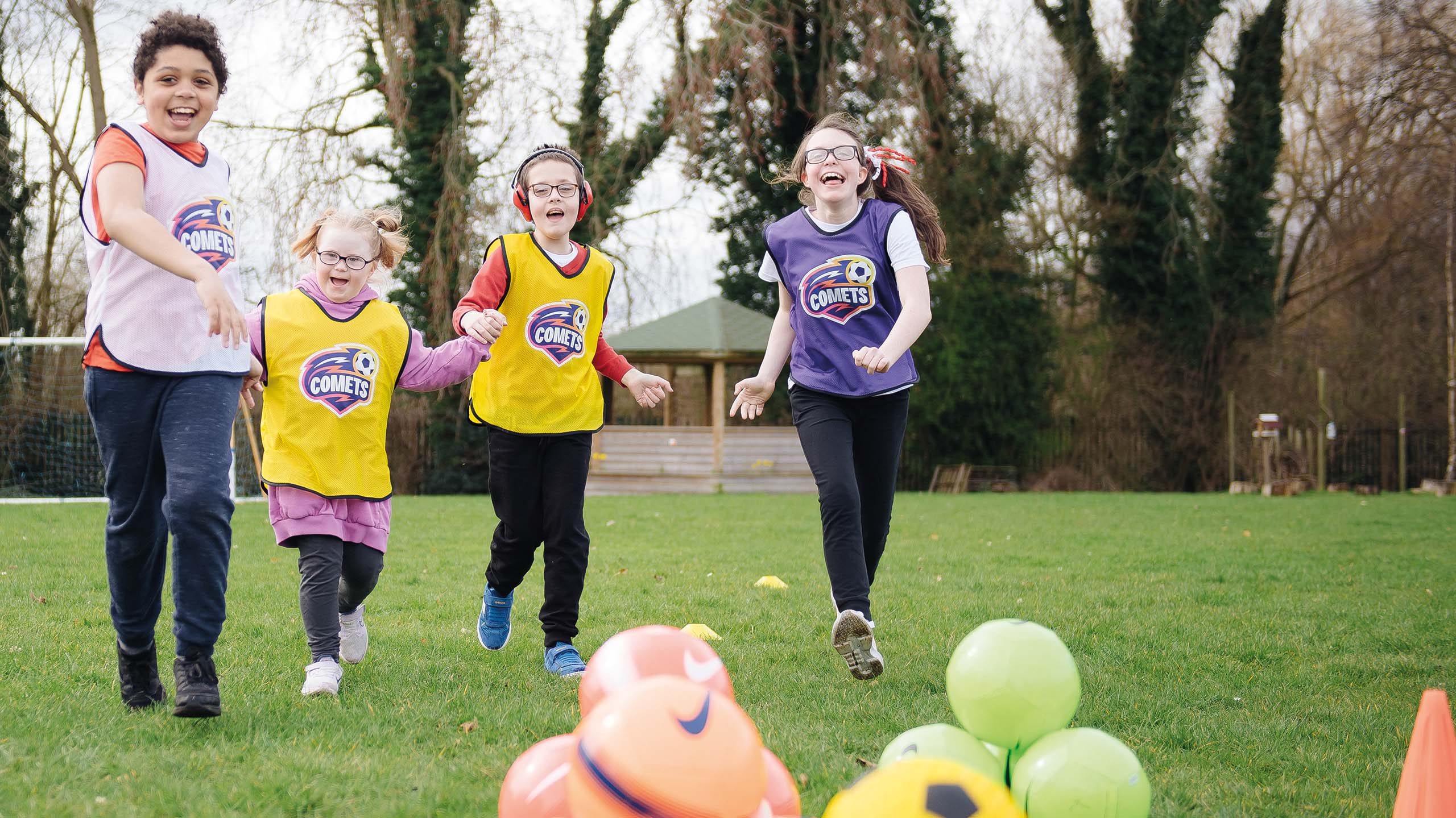
The Football Association
Wembley Stadium
London HA9 0WS
T: +44 (0)800 169 1863
F: +44 (0)800 169 1864
W: TheFA.com
